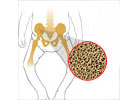Researchers from University of California, San Francisco and UC Berkeley have found that children with inflammatory bowel disease (IBD) have higher concentrations of folate in their blood.
Previous studies have shown that adults with IBD tend to have lower folate levels than those without the disease.However, the new findings challenge the previously held theory.
To date, many clinicians have recommended folate supplementation for all IBD patients. Yet because the study found normal folate concentrations in children with newly diagnosed cases, this recommendation might need to be reconsidered.
"This is exciting work that opens the door to additional research into the role of folic acid and its genetic basis in the development of IBD, especially in young patients," said first author Melvin Heyman, MD, a professor of pediatrics, chief of pediatric gastroenterology, hepatology and nutrition, and director of the Pediatric IBD Program at UCSF Children's Hospital.
According to Nina Holland, PhD, a senior author on the paper, a folate deficiency may have multiple causes, such as poor absorption of folate across the intestinal tract, lower dietary intake of the nutrient, and medication interactions.
"However, pediatric IBD appears to be somewhat different from the adult form, and before this study very little was known about folate levels in newly diagnosed children with this disease," she added.
Advertisement
For the study the researchers, measured blood folate levels in 78 children aged 5 to 17 years. Both the red blood cell folate concentrations and whole-blood concentrations were compared.
Advertisement
In further analysis, the researchers compared the dietary intake of folate. They found that the dietary folate intake was 18.8 percent higher in the controls than in patients with IBD.
"We were surprised to see the IBD patients had significantly higher blood folate concentrations than the controls, even though the latter group appeared to have higher dietary folate intakes," said Heyman.
The study appears in the February 2009 issue of the "American Journal of Clinical Nutrition".
Source-ANI
SRM















